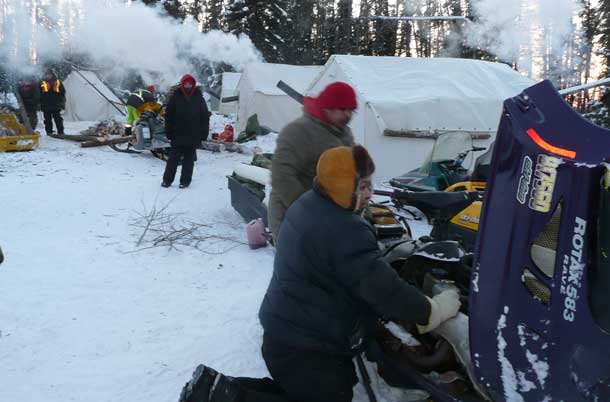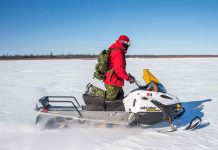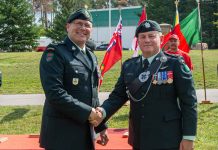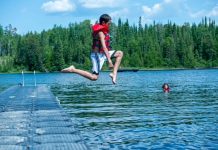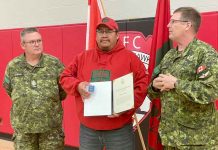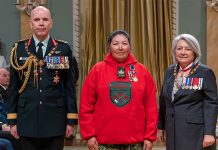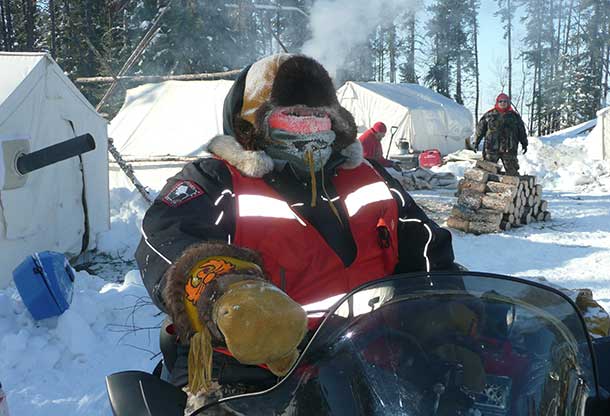

NORTH CARIBOU LAKE – Canadian Rangers from several First Nation communities impressed a visiting general during a three-day training exercise in North Caribou Lake.
It was the first time Brigadier-General David Patterson had seen Canadian Rangers operating on the land and it left a positive impression on him.
“Their enthusiasm for the Ranger program was amazing,” he said.
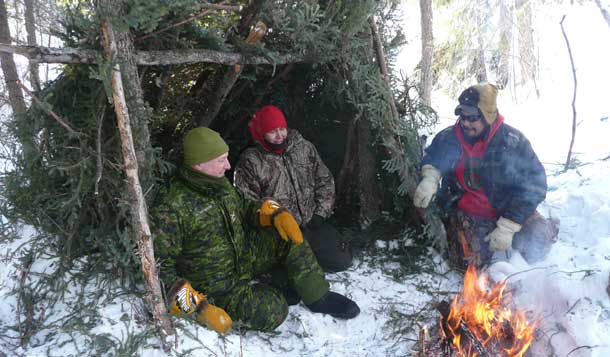
General Patterson is the deputy commander of 4th Canadian Division, which commands the army in Ontario. Temperatures during the exercise dipped to -40C with brisk winds producing wind chills as low as -49C.
‘It was a very cold weekend and their ability to keep things going, working with bare hands on snowmobile engines, and just the act of living on the land in those temperatures was impressive,” he said.
The exercise brought together Rangers from Bearskin Lake, Kasabonika Lake, Kitchenuhmaykoosib, Muskrat Dam, North Caribou Lake, and Sachigo Lake, many of whom had to snowmobile over considerable distances to get to it. Two Rangers from Kasabonika snowmobiled for three days to get to North Caribou Lake and required the same amount of time to return home.
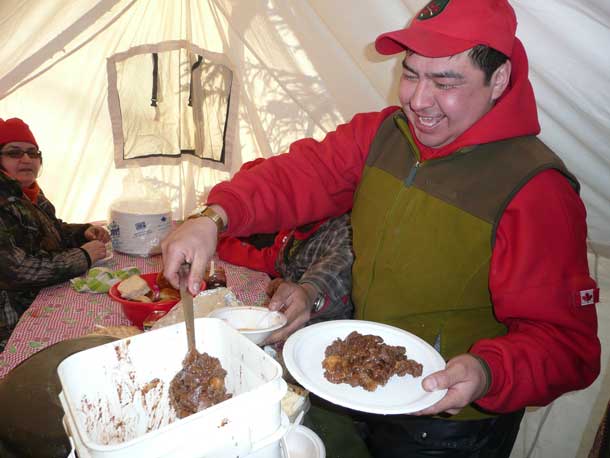
Training included building improvised shelters, emergency smoke signals, and a challenging night navigation in which General Patterson participated, driving a snowmobile for the first time.
“The night navigation exercise was a lot of fun,” he said. “They took me out for a little check ride with one of the sergeants, to give me some basic skills so I could follow on the exercise and keep up with them. They refuelled at minus 40 in the dark. They travelled using GPS, while moving on their snowmobiles at night, and arrived with 10 feet of the point they were supposed to on five occasions. That was impressive.”
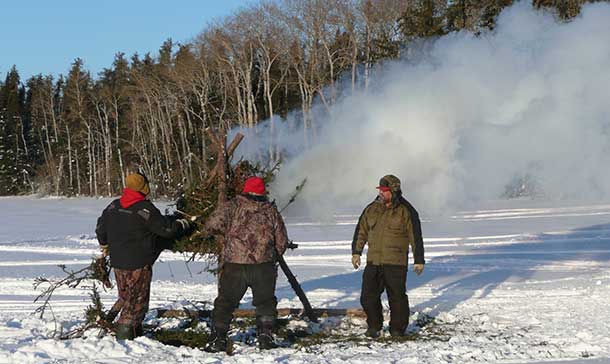
The Rangers, he said, play a vital role in their communities across Canada’s north. “They are the only part of the army that has a real 24-7 operational role in Canada all of the time.” In Ontario, Rangers play a leading role in search and rescue and in spring flood and forest fire emergencies.
The army has rapid response units for domestic emergencies located in bases across the south of Canada and they are expected to be able to respond within 12 hours. But Rangers, located in their northern communities, often respond within one or two hours.
“For the money we spend on the Rangers the value we get from them is tremendous,” the general said.
Master Corporal Linda Kanate, of the North Caribou patrol, shot a moose and prepared a large moose stew to feed the Rangers. “I appreciated that moose stew,” General Patterson said.
His visit was the first time such a senior military officer has visited North Caribou Lake, said Sergeant Jason Roundhead, the local patrol commander, but there was one disappointment. The chain saw that would have cut a hole in the lake ice to provide ice rescue training broke down and that part of the training was cancelled. “It would have been a good experience for the general to go into the lake and learn how to get out of it,” he said.
Sergeant Barry Borton, an army instructor, said it was a good exercise. “Our job is to patrol northern Ontario and we covered a lot of ground with Rangers coming here to train with the North Caribou Rangers. It was impressive to watch them working together as a team from six different communities and everybody getting along together.”
(Sergeant Peter Moon is the public affairs ranger for 3rd Canadian Ranger Patrol Group at Canadian Armed Forces Base Borden.) Photos supplied by Sergeant Peter Moon.
